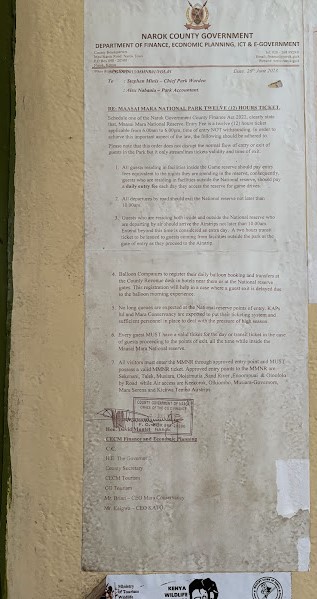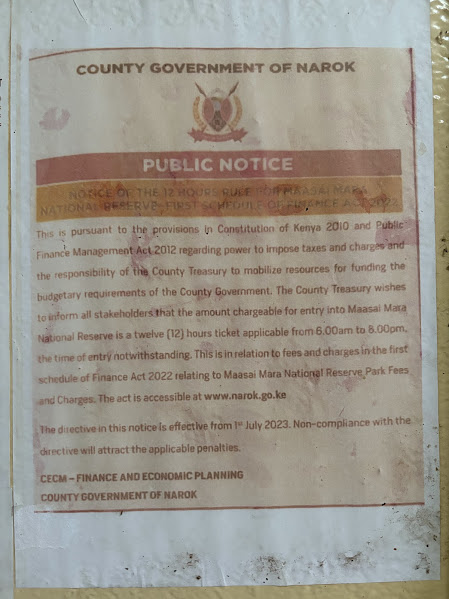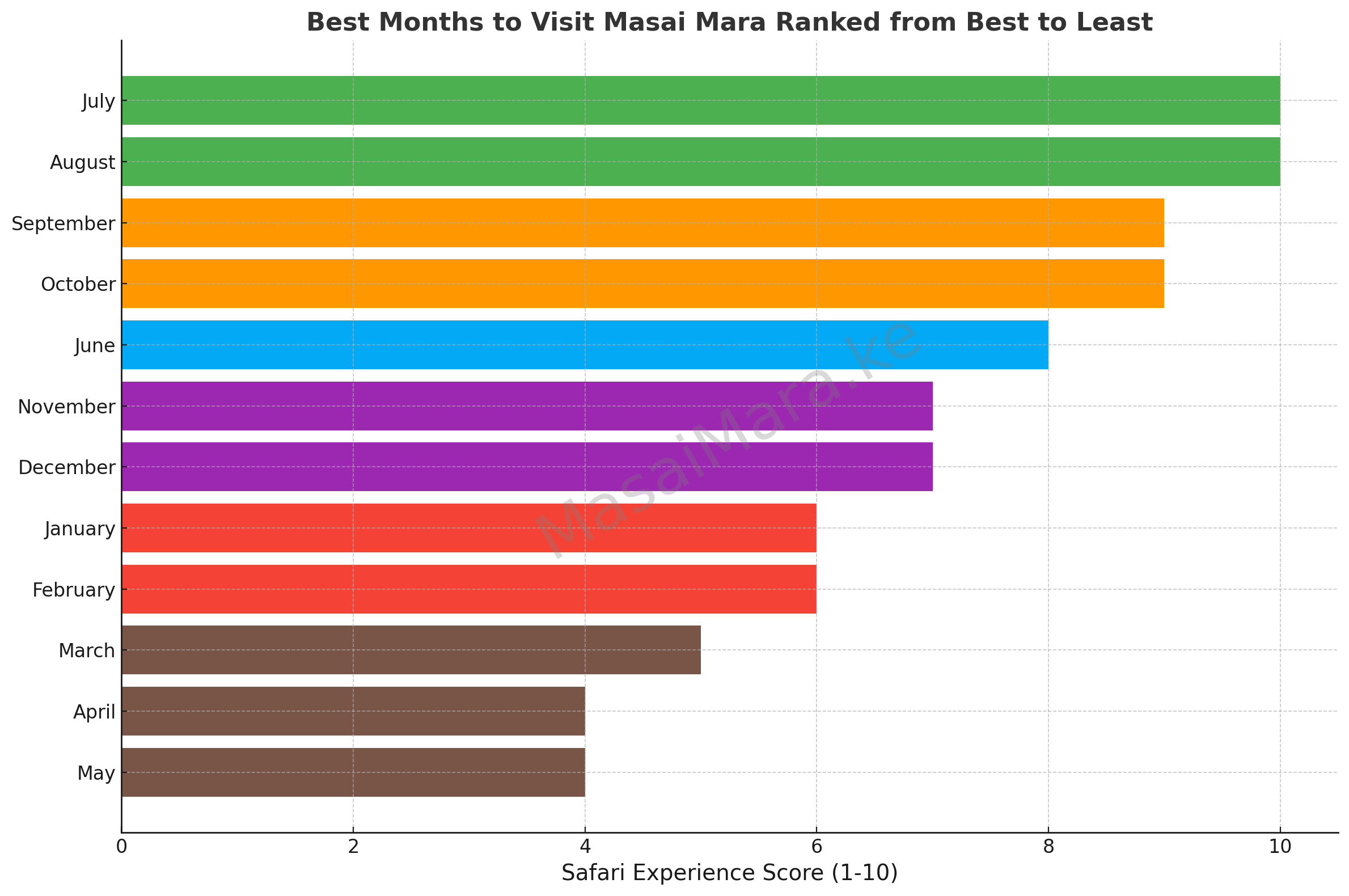The 12-hour rule in Masai Mara National Reserve, introduced by the Narok County Government on 26th June 2023, mandates that all park entry tickets are valid for a maximum of 12 hours, specifically from 6:00 AM to 6:00 PM, replacing the previous 24-hour validity system. This rule aligns with the Narok County Government Finance Act of 2022 and the new Masai Mara Management Plan, aimed at enhancing park management, conservation efforts, and revenue collection.
Non-resident visitors are now required to pay $200 for a daytime entry ticket, with an additional $80 overnight fee if staying inside the reserve, and must exit by 10:00 AM the following day. A 2-hour transit allowance is provided for those passing through the park without engaging in game drives. This policy significantly impacts safari planning, accommodation choices, and budgeting, particularly during peak seasons like the Great Migration.
📜 Overview of the 12-Hour Ticket Rule
The new ticketing policy is implemented in line with the Narok County Government Finance Act of 2022 and supports the objectives of the new Masai Mara Management Plan. These changes aim to improve resource utilization within the reserve while enhancing visitor management during peak seasons, especially during the Great Migration.
Below is an image of the memo I took when I recently passed through Sekeani Gate.

Key Changes in the 12-Hour Rule:
- Ticket Validity:
- All tickets issued for entry into the Masai Mara National Reserve are now valid for 12 hours only, effective from 6:00 AM to 6:00 PM.
- This replaces the previous system, where tickets were valid for a full 24-hour period from the time of entry.
- Exit Time for Overnight Visitors:
- Visitors staying inside the reserve must exit the park by 10:00 AM the following day, even if they have paid for an overnight stay.
- Failure to exit by 10 am will be charged an extra day of stay
- Transit Time:
- A 2-hour transit window has been introduced for travelers passing through the reserve.
- This applies to visitors not engaging in game drives but simply using the reserve as a transit route. Exceeding the 2-hour limit without proper documentation may attract fines.

💰 Revised Ticket Prices and Fee Structure
The introduction of the 12-hour rule has also come with significant changes in park entry fees, especially for non-residents during peak season from July to December;
| Category | Previous Fees (24 Hours) | New Fees (12 Hours) | Overnight Fee (Inside Reserve) | Total (With Overnight) |
|---|---|---|---|---|
| Non-Residents | $80 | $200 | $80 | $280 |
Key Insights on the Price Increase:
- The cost for non-residents has increased from $80 for 24 hours to $200 for 12 hours.
- For those staying overnight inside the reserve, an additional $80 applies, bringing the total to $280.
- This change represents a 250% increase in park entry fees for non-residents compared to the previous pricing structure.
⚠️ Important Guidelines from the Memo
- Booking and Registration:
- Tour operators must register all bookings in the Masai Mara management system prior to arrival.
- It is mandatory for all visitors to have their tickets digitally verified at entry and exit points.
- Proof of Accommodation:
- Visitors staying inside the reserve must provide proof of booking for accommodation within the park.
- Accommodation details will be cross-checked during entry and exit to ensure compliance with the 12-hour rule.
- Penalties for Non-Compliance:
- Overstaying beyond the 12-hour limit without valid justification will result in penalties, including potential fines or additional park fees.
- Visitors found misusing the 2-hour transit allowance for game drives without proper payment will also face penalties.
🗓️ Impact on Safari Planning
The new 12-hour rule significantly affects how travelers plan their safaris:
- Day Trips: Visitors must plan game drives within the 6 AM to 6 PM window. Exiting after this time may result in additional fees.
- Overnight Stays: Even with an overnight fee, visitors must exit by 10 AM the following day unless a new ticket is purchased.
- Budget Travelers: Staying outside the reserve near main gates (e.g., Sekenani Gate) can help reduce costs, as you’ll only pay for park entry on game drive days.
✅ Conclusion
The implementation of the 12-hour ticket rule is a major shift in Masai Mara’s park management, reflecting efforts to improve sustainability and enhance revenue for conservation. While it results in higher costs for visitors, careful planning can help optimize safari experiences while staying within budget.
Visitors are encouraged to stay informed, plan their itineraries effectively, and ensure compliance with all new regulations to enjoy a seamless and unforgettable Masai Mara safari experience.

